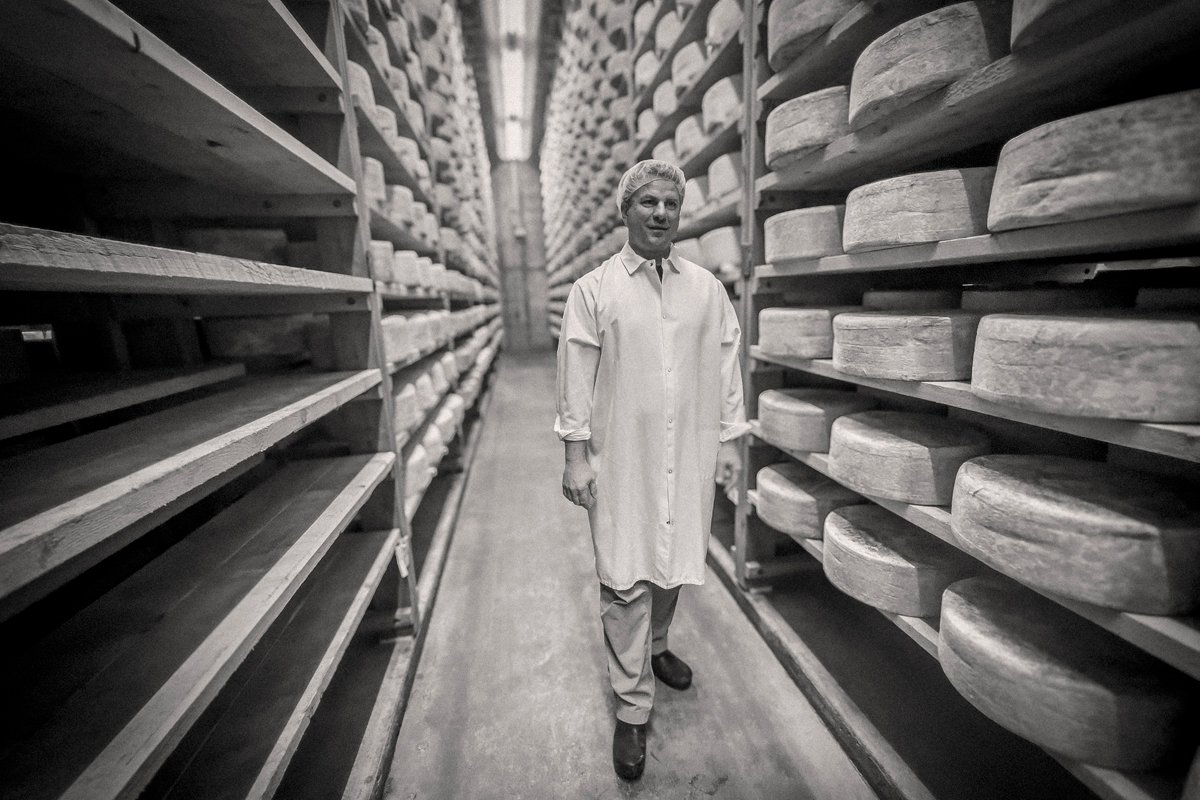In this week’s Field Report, the food system takes the stage at the next climate convening, new California food safety laws, and more.

In this week’s Field Report, the food system takes the stage at the next climate convening, new California food safety laws, and more.
October 16, 2023

An oil field in the United Arab Emirates. (Photo credit: Anton Petrus, Getty Images)
Last year, in the lead-up to COP27, the biggest global convening on climate change, many groups worked to call attention to the fact that governments and businesses were not doing nearly enough to address food and agriculture in their plans to tackle the crisis. Now, as COP28 approaches at the end of November, some of the same advocates say the event may finally put food and agriculture “at the center” of the conversation.
“For the first time during a global climate summit, heads of states of many countries are expected to commit to transforming their food and agricultural systems,” said Patty Fong, the program director of climate at the Global Alliance for the Future of Food (GAFF), during a press conference last week. “In addition, actors from across the food system—from food producers to financial institutions—are expected to pledge their own resources and advance ambitious plans.”
The urgency is clear. In the last year, the United Nation’s Intergovernmental Panel on Climate Change (IPCC) summed up the takeaways from its Sixth Assessment of the climate crisis by calling for “rapid and far-reaching transitions in every sector.” Expert panel members pointed to food and agriculture solutions, including reducing deforestation, improving cropland management, and shifting diets as critical to meeting targets that will ensure “a livable and sustainable future.”
At last week’s press conference, a group of panelists, some of whom are directly involved in COP28, spoke in broad terms about the new prominence the food sector will have in Dubai. The agenda for the two-week-long event currently includes a full day dedicated to food, agriculture, and water, and another focused on nature, land use, and oceans.
In terms of specific outcomes, David Nabarro, senior advisor to the COP28 food systems team, said that at least 50 (and possibly closer to 100) countries are expected to sign a “declaration” around food and climate.
“The declaration is key to what will be a two-year process through which countries will converge their work on climate and their work on food in ways that serve the interests of farmers and . . . consumers of all kinds,” said Nabarro. “There is built into the declaration the notion that there will also be accountability.”
Diane Holdorf, the executive vice president of pathways at the World Business Council for Sustainable Development, added that businesses will sign on to their own declaration, which she said would build on the Business Declaration for Food Systems Transformation created at the U.N. Food Systems Summit in 2021.
At the time, some hailed that summit as a pivotal step forward for food and climate, but hundreds of Indigenous organizations, smallholder farmer groups, and scientists boycotted it because they felt it allowed corporations to steer the ship away from grassroots solutions like agroecology in the name of profit and control.
In response to a question about how consolidation in food and agriculture might impact climate solutions and equity coming out COP28, panelists at the press conference diverged on their concerns.
Estrella “Esther” Penunia, the secretary general of the Asian Farmers’ Association for Sustainable Rural Development, called consolidation a “big problem” and talked about transforming the food system to “shift the power to the people.”
But Tim Benton, research director of the Environment and Society Programme at the think tank Chatham House, said that concentrated power presented both risks and opportunities. If businesses maintained the status quo, the power asymmetry could prevent efforts to build resilience on small farms at the local level, he said, but, “the opportunity is that . . . if we convince five or six companies to do the right thing in the right way, then large scale change can happen very, very quickly,” he said.
“It is unprecedented that food systems is on the political agenda in this coming COP and it’s an opportunity that we need to support. On the other hand, it is not separate from the need to phase out fossil fuels and is not separate from the energy transition.”
Regardless, questions about what kinds of food and agriculture solutions get prioritized and who will benefit from those solutions will undoubtedly continue to arise as more details emerge in the run-up to November 30.
The host of COP28, the oil-rich United Arab Emirates—with its increasingly hot and arid landscape, heavy dependence on imports, and sizable investments in ag-tech—has made the food sector a big priority. In May, Mariam bint Mohammed Almheiri, the U.A.E.’s minister of climate change and environment, was in Washington, D.C. working alongside U.S. Secretary of Agriculture Tom Vilsack to advance AIM for Climate, a joint U.S.-U.A.E initiative developed in partnership with the world’s biggest chemical, seed, and meat companies—many of whom drive the food system’s biggest sources of greenhouse emissions. Farmers and environmental groups were also notably sparse at the summit.
In August, Almheiri declared in an op-ed that the U.A.E. will “put the focus squarely on food systems and agriculture, encouraging governments to update their nationally determined contributions or NDCs, with specific food targets, and gathering commitments from private and public sector stakeholders for funding and technology.”
But it’s not clear whether this focus on food will draw attention away from the world’s superpowers and their responsibility to immediately, rapidly decrease fossil fuel production.
Less than two weeks before Almheiri’s op-ed ran, reporting out of France found that despite plans to increase renewable energy production, the U.A.E’s own contribution falls far short of the action needed to align with the 1.5 degree warming target set in the Paris Agreement due to the state oil company’s plan to continue increasing oil and gas production. U.A.E. leadership also chose the head of Abu Dhabi National Oil Co. as president of COP28, and OPEC will have a dedicated pavilion for the first time at a COP conference.
When asked, panelists at the press conference said they did not see the focus on food as distracting from that larger push. “It is unprecedented that food systems is on the political agenda in this coming COP and it’s an opportunity that we need to support. On the other hand, it is not separate from the need to phase out fossil fuels and is not separate from the energy transition,” said Fong from GAFF, who also flagged an upcoming report from her organization that will look at how fossil fuels and agriculture are intertwined.
Read More:
The IPPC’s Latest Climate Report Is a Final Alarm for Food Systems, Too
Did the First U.N. Food Systems Summit Give Corporations Too Much of a Voice?
Is Agroecology Being Coopted by Big Ag?
Packaged Food Policy. Last week, California governor Gavin Newsom signed two different bills into law that will have significant impacts on eaters and food companies both within and beyond the state.
The first will require baby food manufacturers to regularly test samples of their products for heavy metals and to make the results available both on their website and to the California Department of Health. Over the past several years, multiple testing efforts have discovered arsenic, cadmium, lead, and mercury in baby foods at levels that are considered dangerous for developing brains. Federal regulators have set limits on the metals but do not require final product testing.
The second law bans the use of four additives currently used in some processed foods: brominated vegetable oil, potassium bromate, propylparaben, and red dye no. 3. All of the additives have been linked to health risks.
“This is a milestone in food safety, and California is once again leading the nation,” said Ken Cook, president of the Environmental Working Group (EWG), which pushed the law forward. California has a long history of moving first on food regulations. Other states and the federal government sometimes follow, and because of the state’s market size, food companies typically choose to change their products and processes for the entire nation.
Read More:
Michael Moss on How Big Food Gets Us Hooked
New California Bill Could Be the First in Nation to Require Food Dye Labeling
Bison Boost. On Thursday, the U.S. Department of Agriculture (USDA) announced that the federal program that provides food aid on federal reservations will expand its purchasing of bison meat from small and mid-sized Indigenous producers, creating a closed loop in which those producers are able to feed their communities. Over the past several years, the agency began testing other changes to the program that could increase food sovereignty on reservations. “This pilot is an important step to use government procurement flexibly for the benefit of tribal and our smaller producers and their surrounding communities,” said USDA Director of Tribal Relations Heather Dawn Thompson.
Recently, the idea of using government procurement to support all kinds of small- and mid-size producers who have historically been left out of the picture has been catching on in Washington, D.C. In September, for example, Senator John Fetterman (D-Pennsylvania) introduced a bill that would eventually require the USDA to spend 20 percent of its meat and poultry procurement dollars with small- and mid-size processors. A coalition of farm groups are pushing to get the program written into the upcoming farm bill.
Read More:
This Pilot Program Is Supporting Tribal Food Sovereignty with Federal Dollars
Calls Grow for a Farm Bill That Supports “All of Us”
Active Ingredients Only. After several years of delay, the Environmental Protection Agency (EPA) denied a petition filed by environmental groups asking the agency to begin testing whole pesticide formulations, essentially pesticides in the form that they would typically be used. Currently, the EPA focuses its evaluation on the “active” ingredient in pesticides, but formulations include other ingredients called “inert,” such as compounds that help disperse the liquid, and groups had argued that the mixtures of different chemicals could result in new toxicity concerns that aren’t currently being captured.
In its denial, the agency said it “disagrees with the petitioner’s assertion that EPA does not adequately assess risks from formulations or ‘tank mixes.’” In a press release, Sylvia Wu, senior attorney at the Center for Food Safety and counsel in the case, called the denial “an irresponsible and unlawful decision that leaves farming communities and endangered species unprotected from exposure to different pesticide formulations and mixtures.”
Read more:
Paraquat, the Deadliest Chemical in U.S. Agriculture, Goes on Trial
When Seeds Become Toxic Waste

September 4, 2024
By paying top dollar for milk and sourcing within 15 miles of its creamery, Jasper Hill supports an entire community.
September 3, 2024

August 27, 2024

August 26, 2024

Like the story?
Join the conversation.